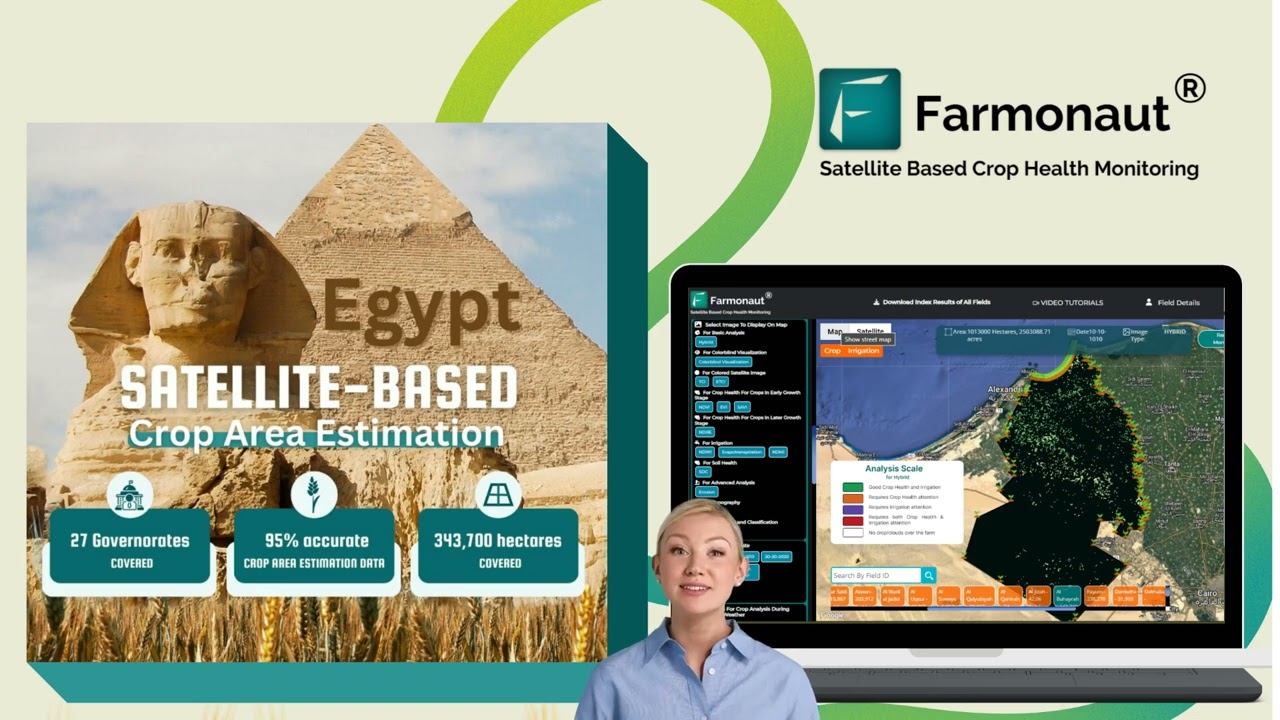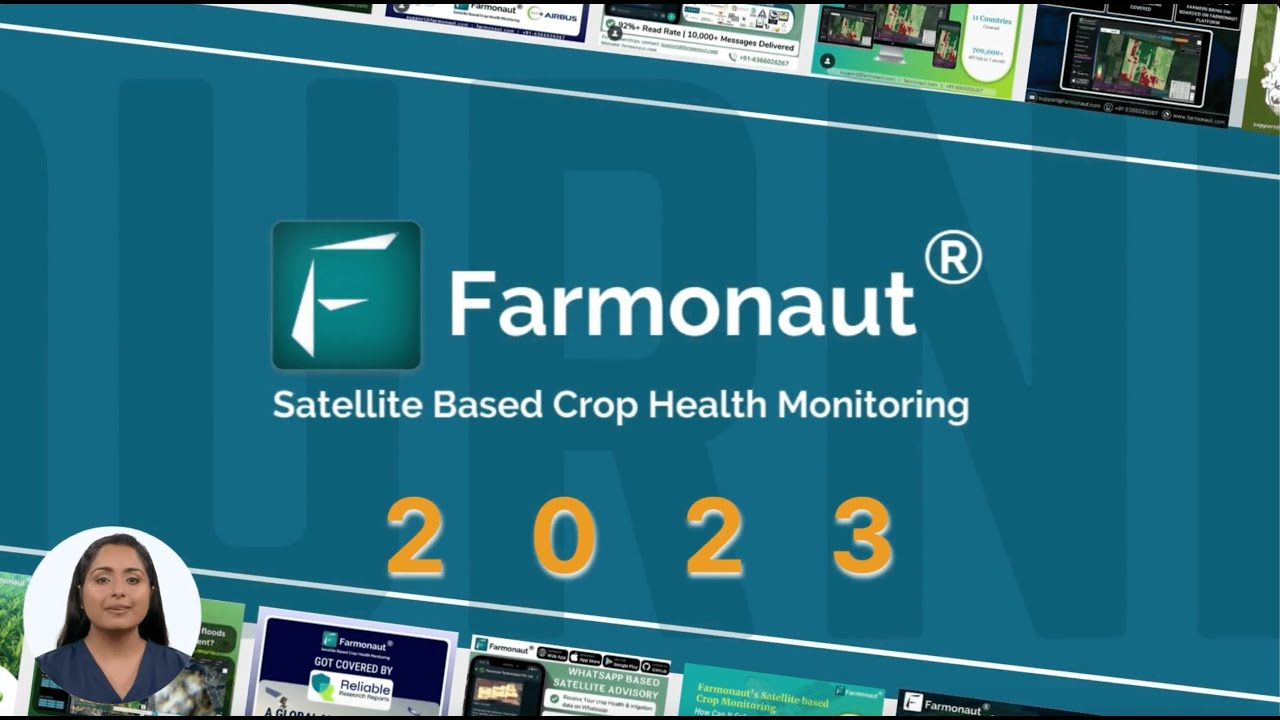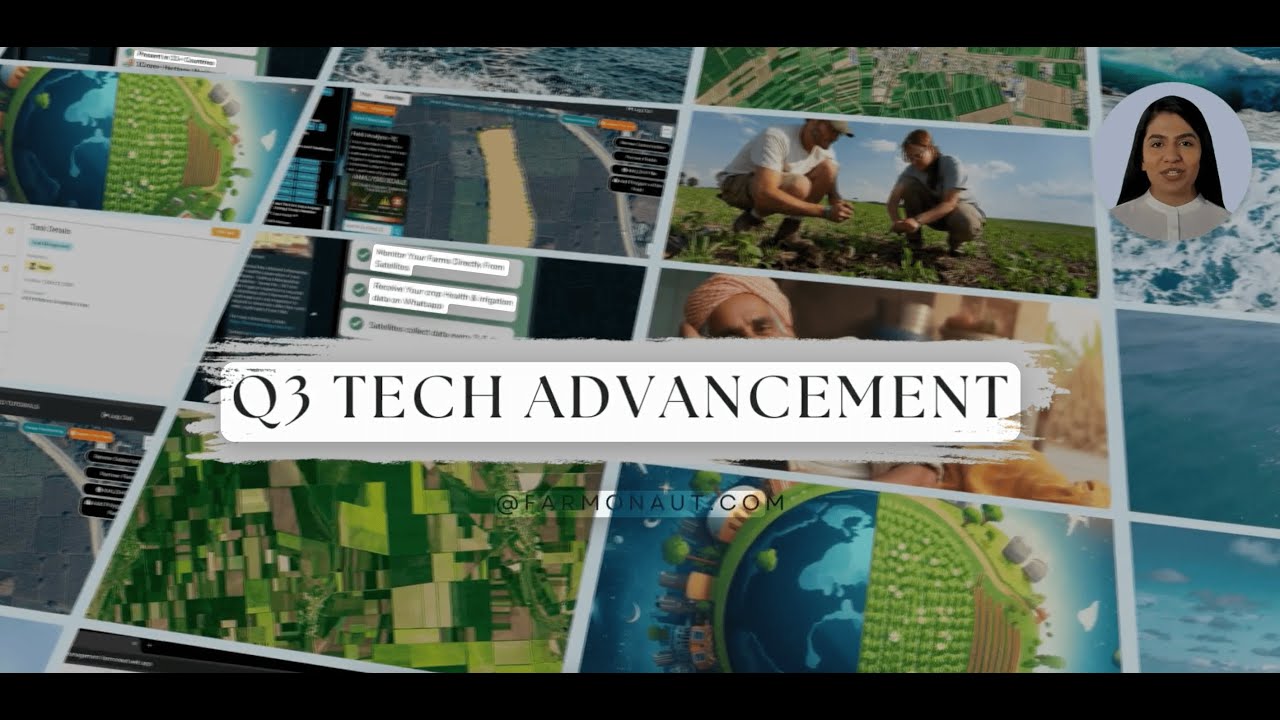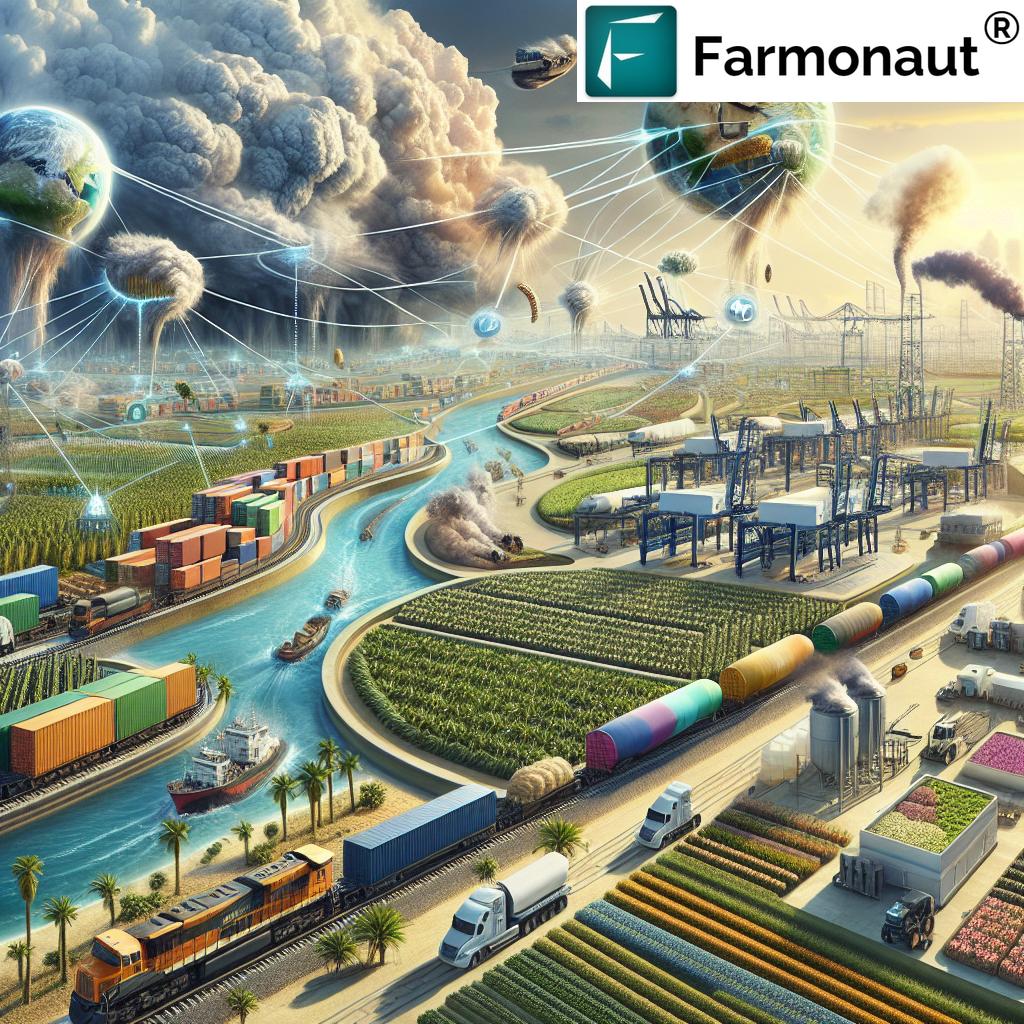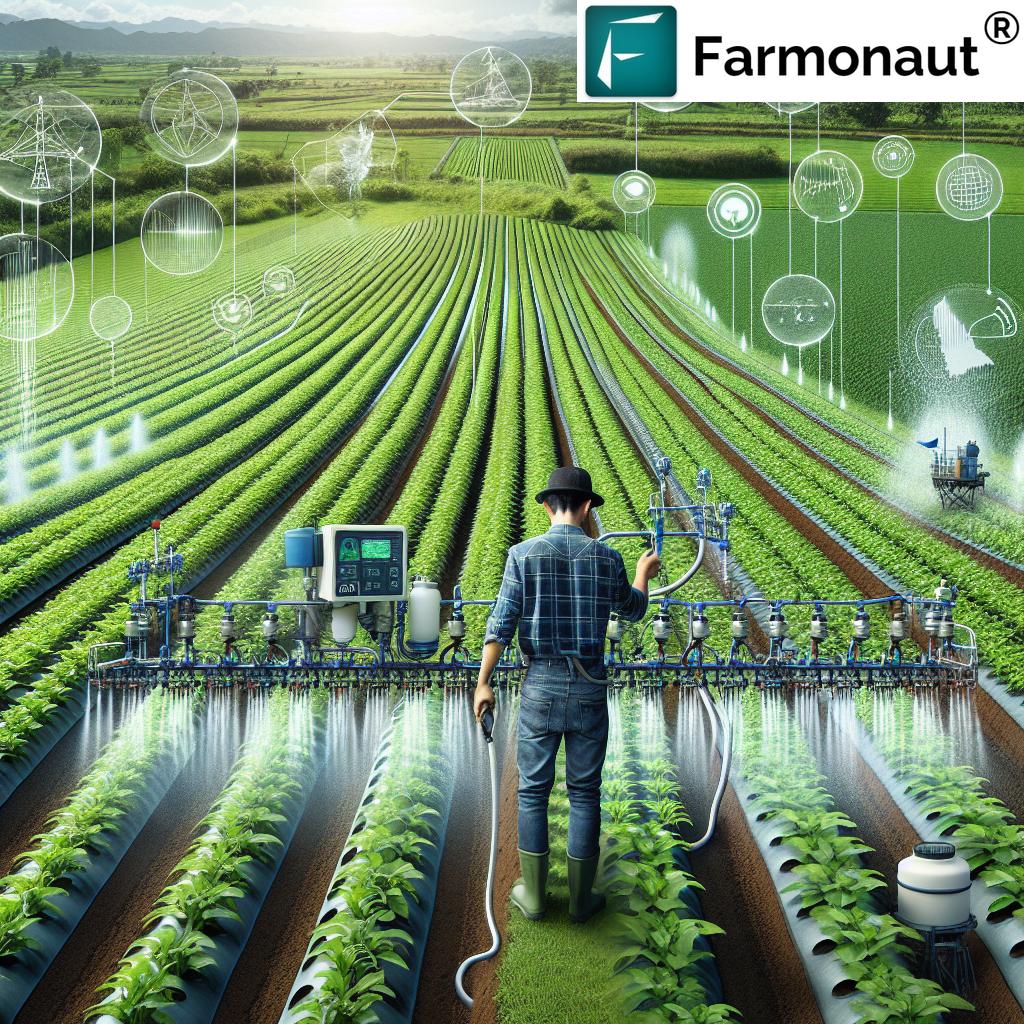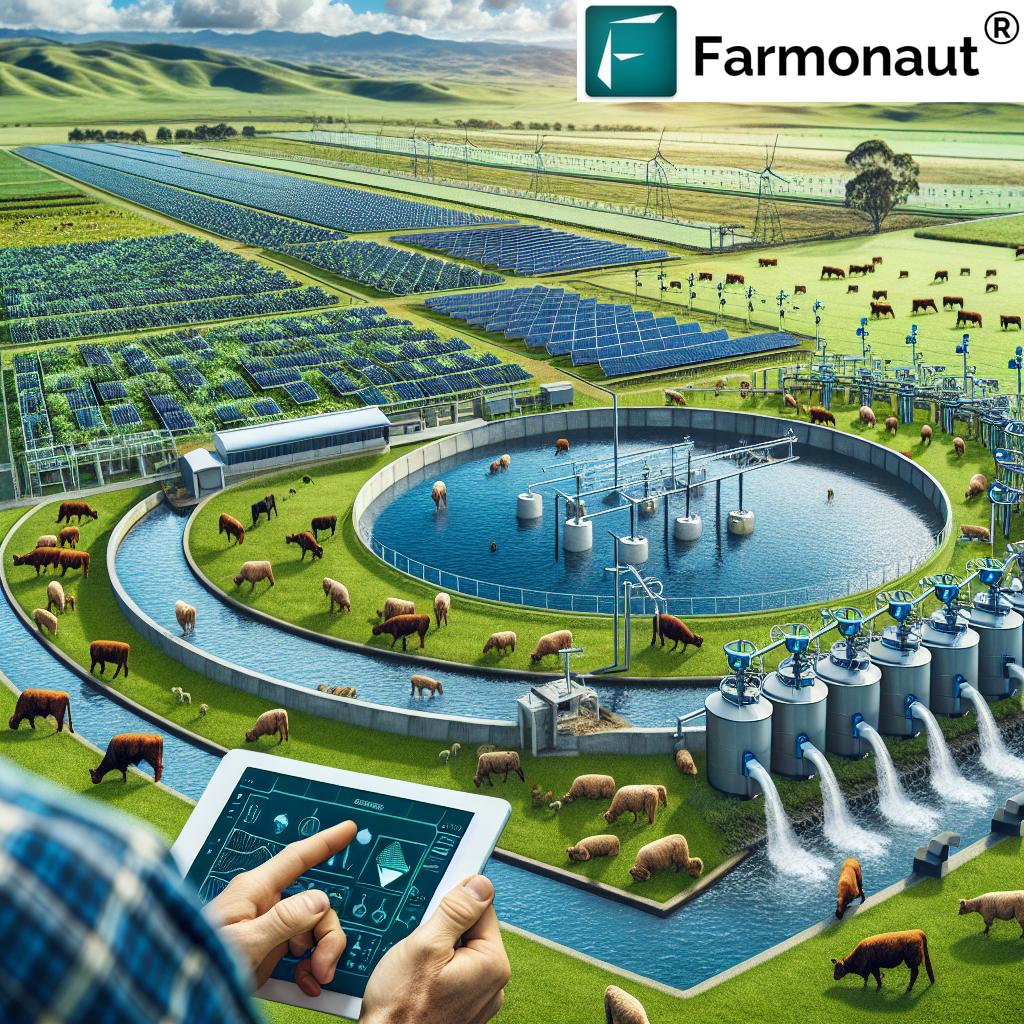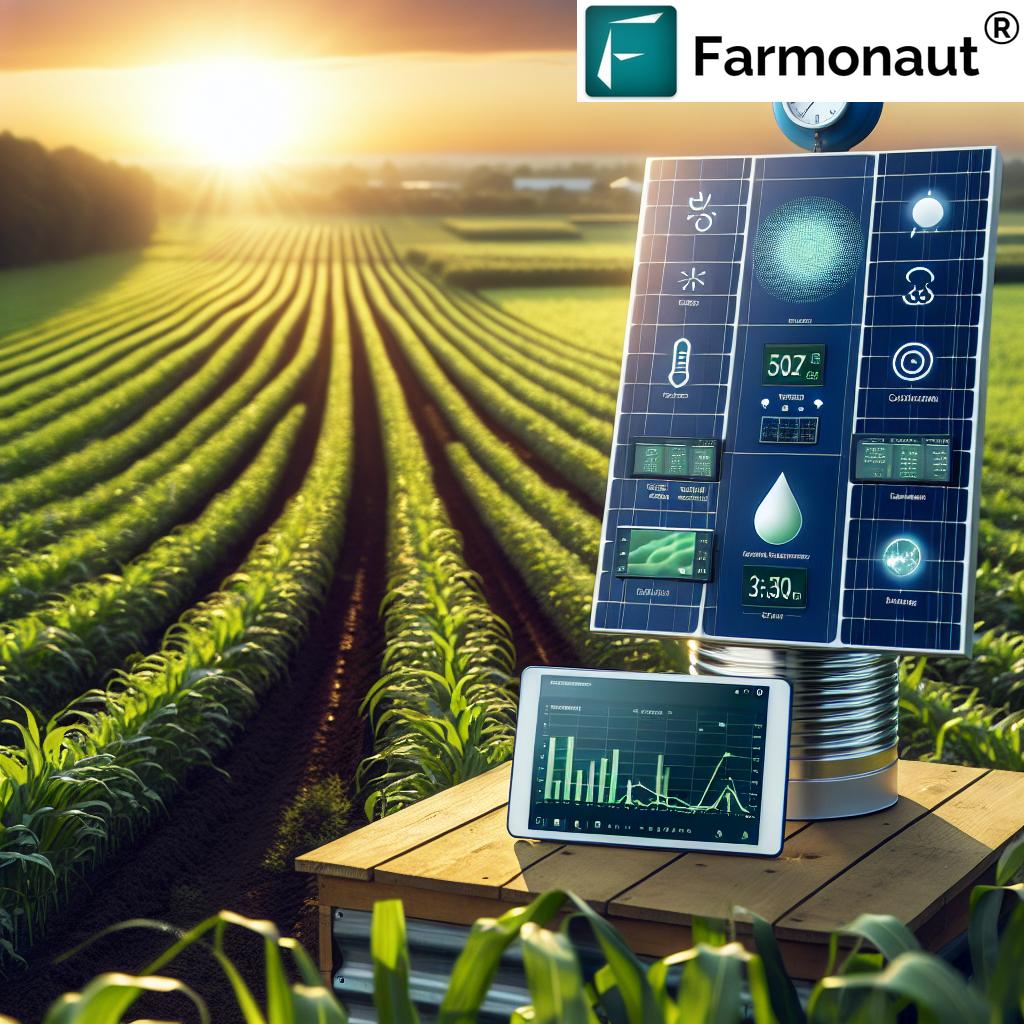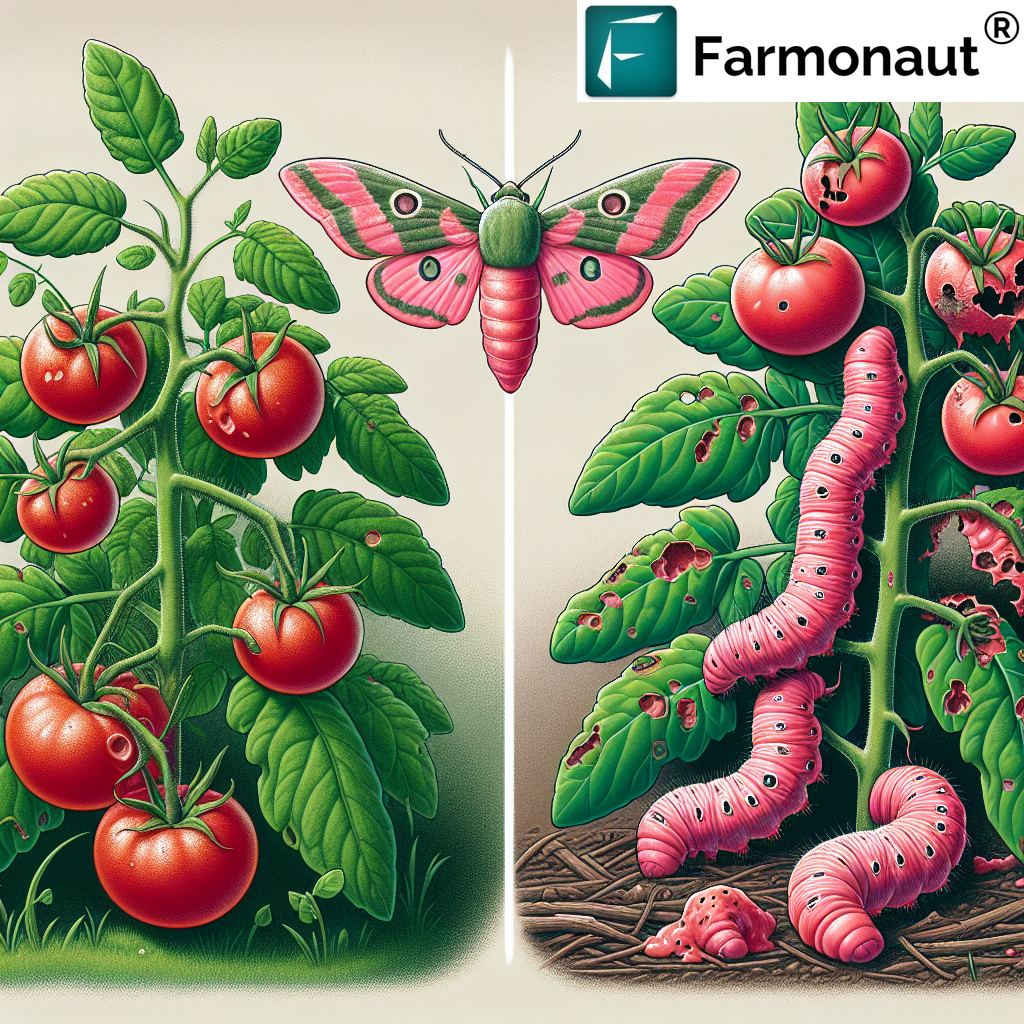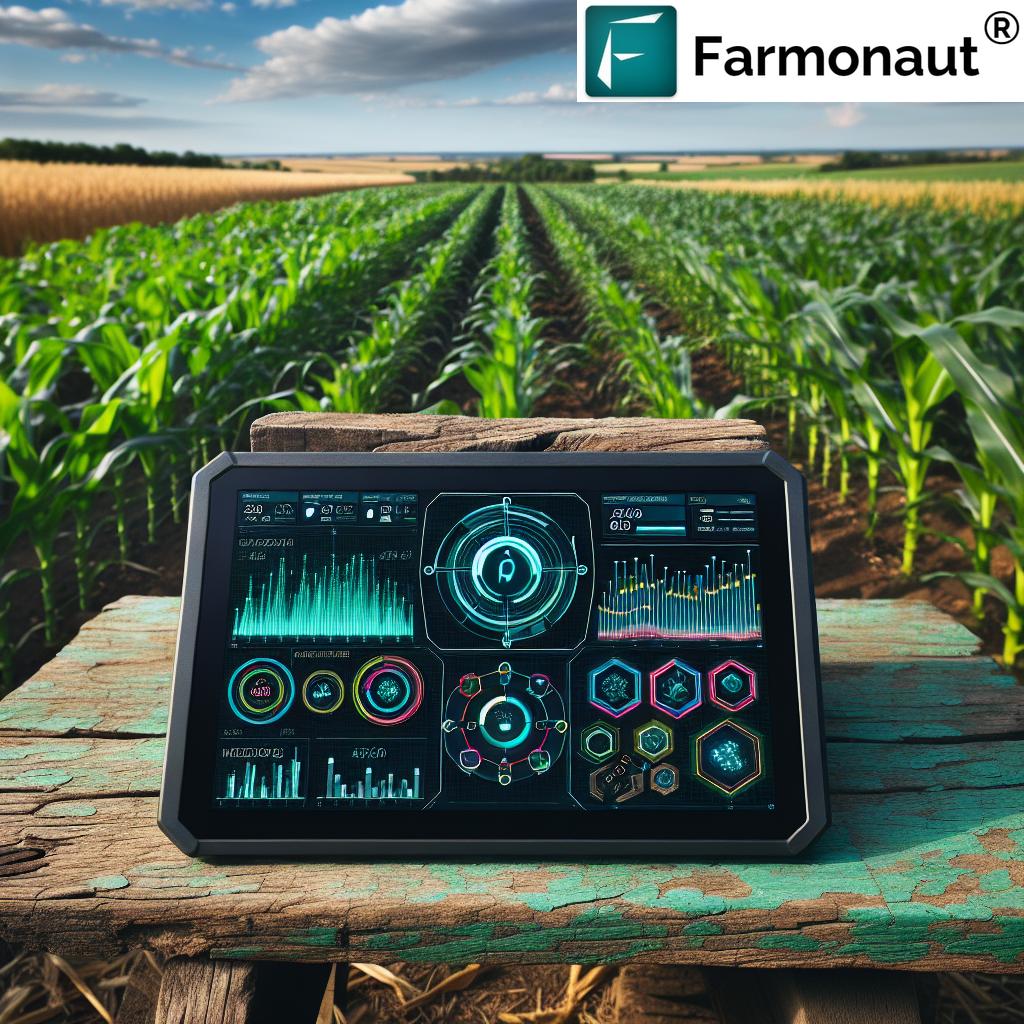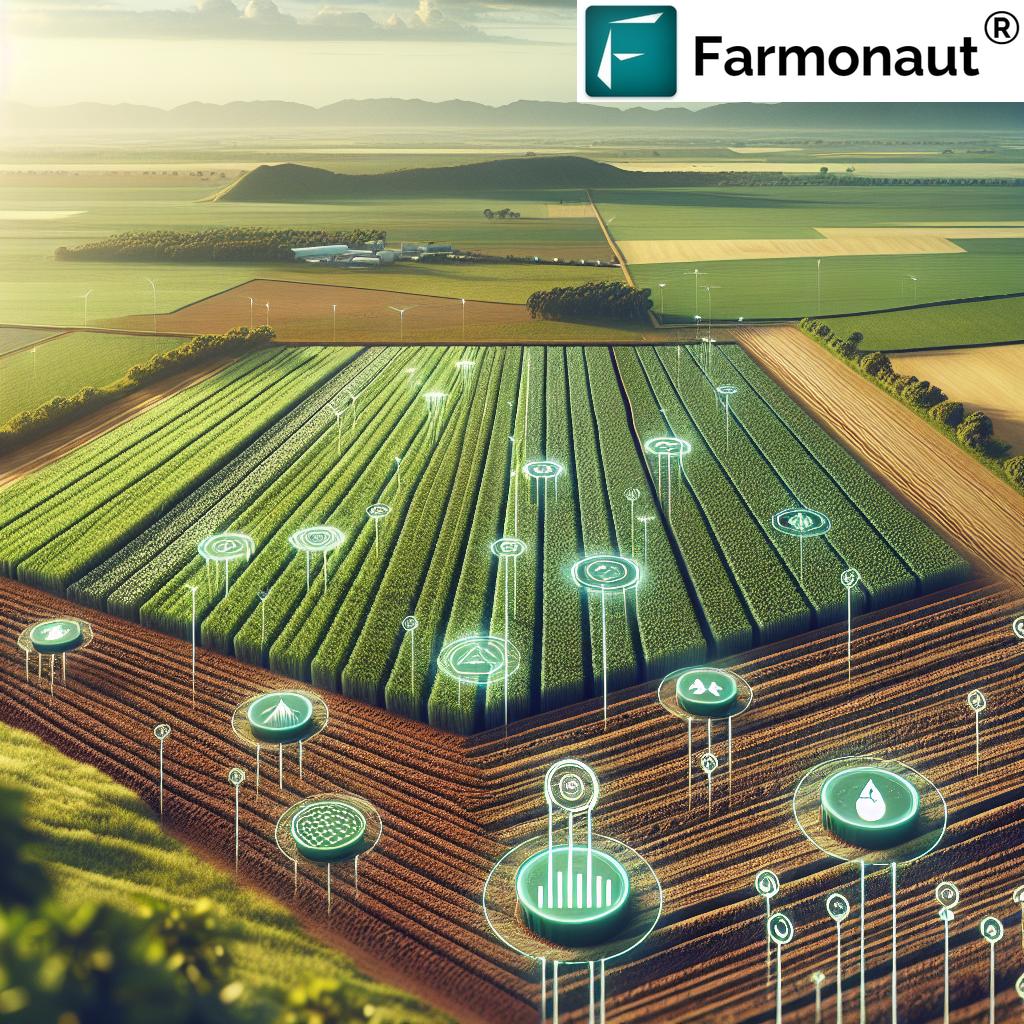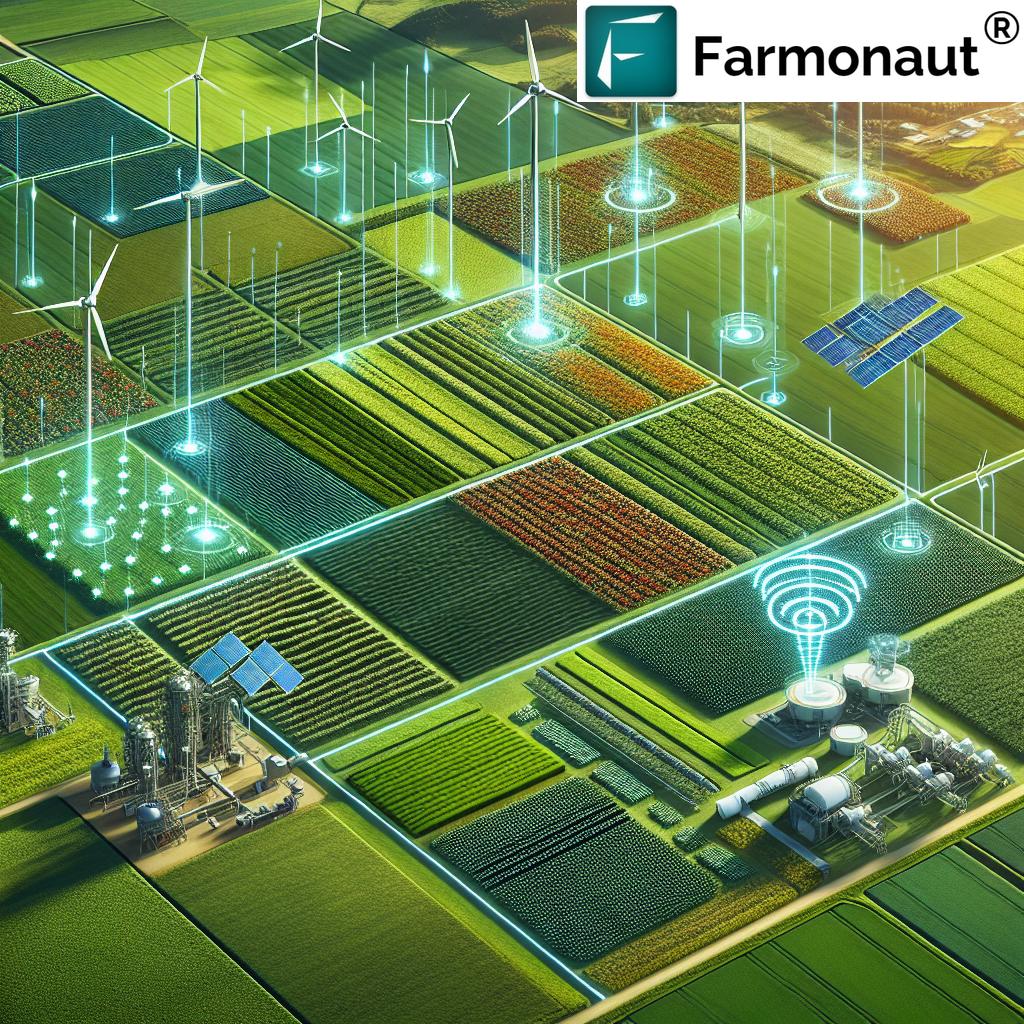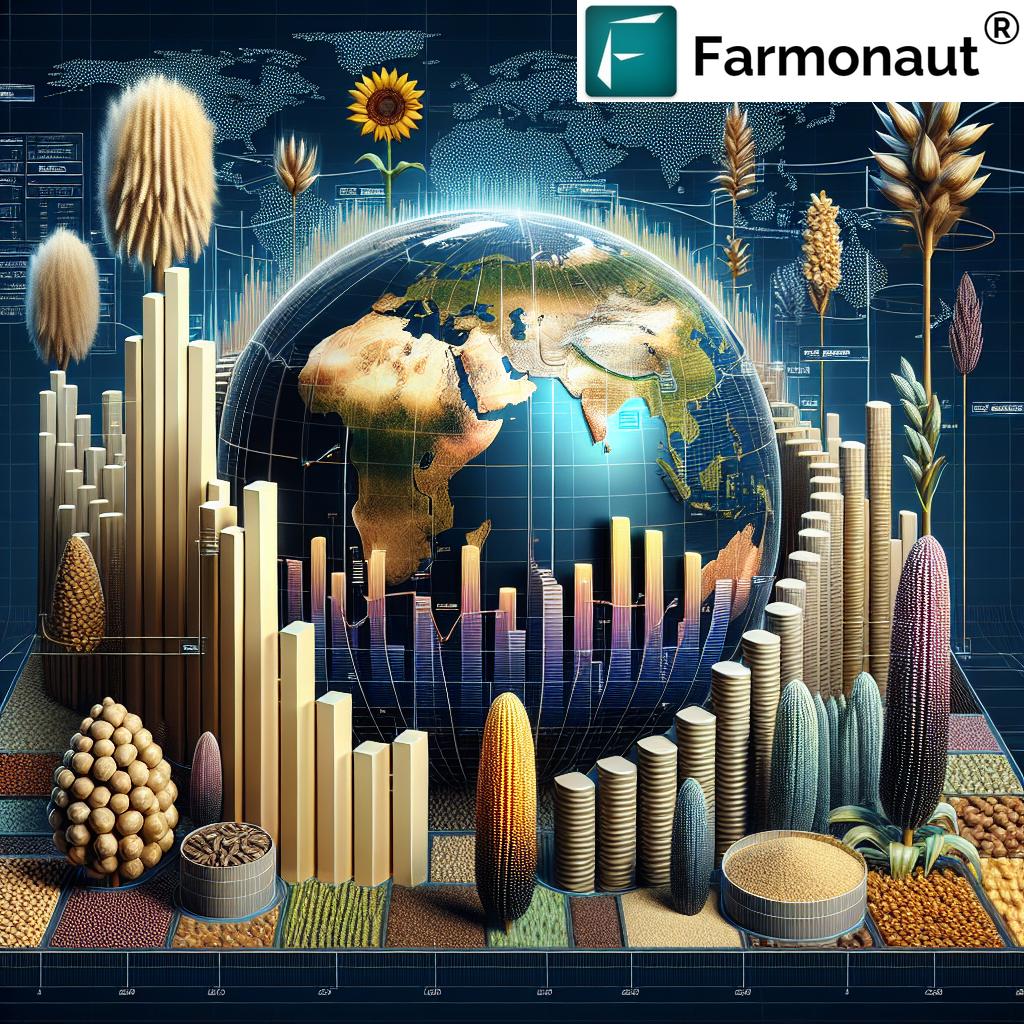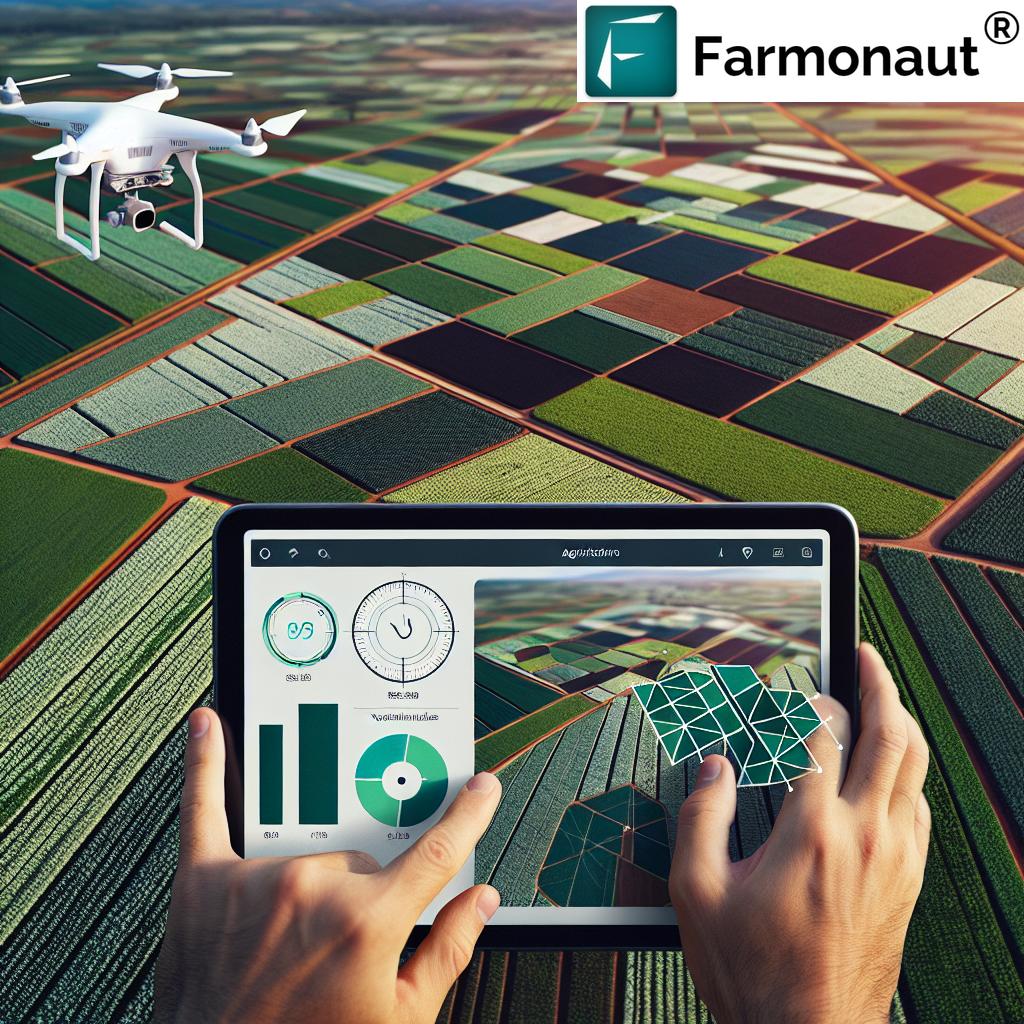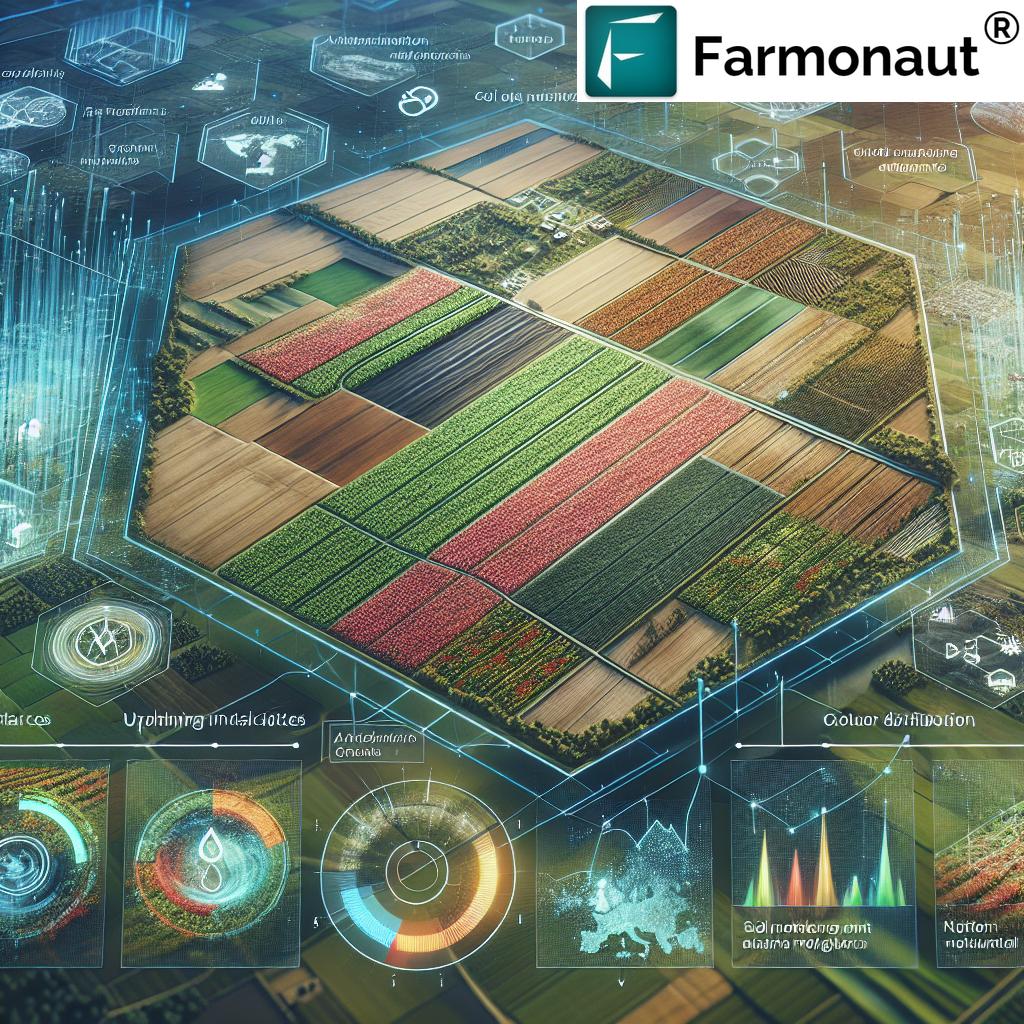Revolutionizing Agriculture: How Precision Farming Technology Boosts Crop Production and Sustainability
“Precision agriculture technology can increase crop yields by up to 30% while reducing water usage by 20-50%, according to recent studies.”
In the ever-evolving landscape of global agriculture, we find ourselves at the forefront of a technological revolution that promises to transform the way we grow food and manage our precious resources. As leaders in the field of agricultural innovation, we are witnessing firsthand how precision farming technology and smart farming systems are reshaping the industry, boosting crop production efficiency, and promoting agricultural sustainability.
Today, we’ll explore the cutting-edge advancements in agricultural equipment innovations, sustainable farming solutions, and digital farming practices that are empowering farmers worldwide to meet the growing demand for food while preserving our planet’s resources. From advanced tractors and combine harvesters to state-of-the-art grain storage solutions, the array of tools available to modern farmers is truly remarkable.
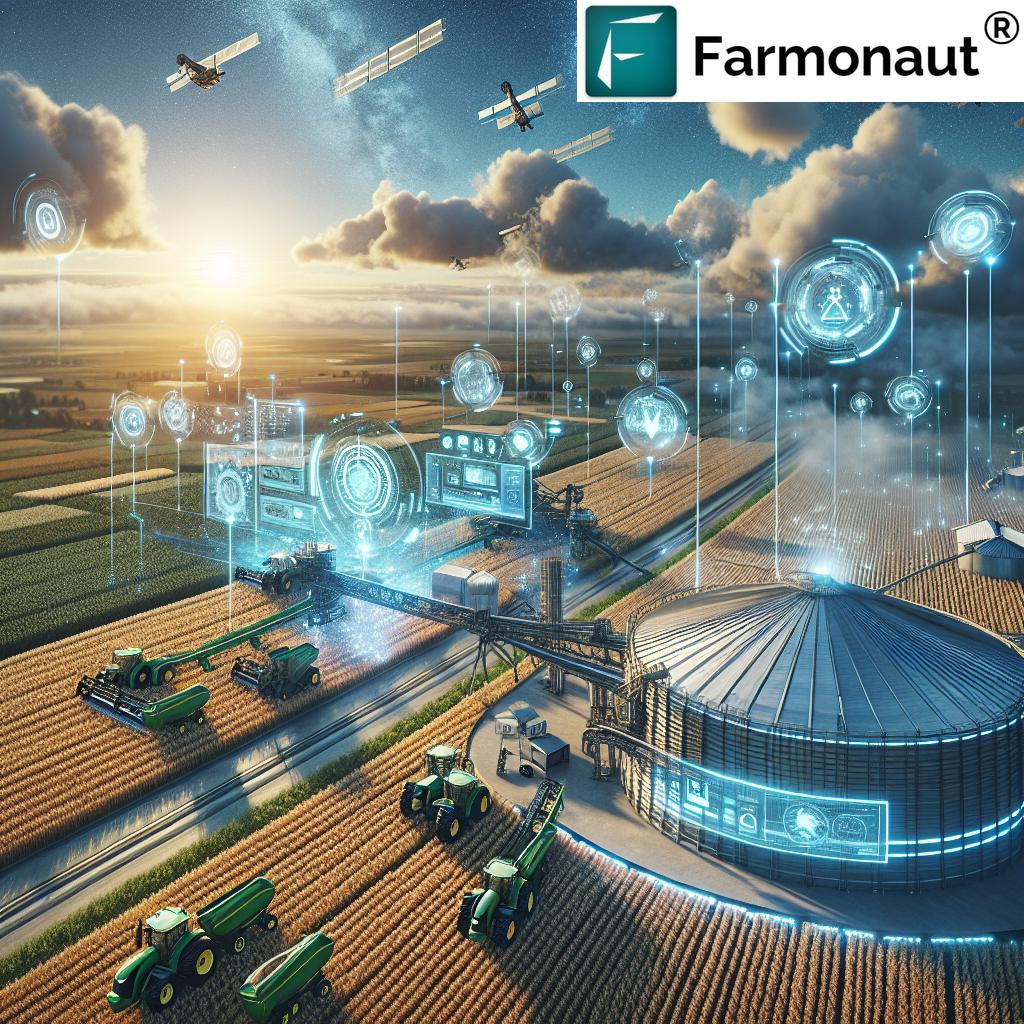
The Rise of Precision Agriculture Technology
Precision agriculture technology is at the heart of this agricultural revolution. By leveraging advanced sensors, GPS technology, and data analytics, farmers can now make informed decisions about every aspect of their operations. This level of precision allows for the optimization of inputs such as water, fertilizers, and pesticides, leading to increased yields and reduced environmental impact.
Key components of precision agriculture include:
- Satellite imagery and remote sensing
- GIS (Geographic Information Systems) applications
- Variable rate technology for input application
- Automated guidance systems for farm equipment
- IoT (Internet of Things) sensors for real-time monitoring
These technologies work in concert to provide farmers with a comprehensive view of their fields, enabling them to address variability within crops and optimize resource allocation. For instance, Farmonaut’s satellite-based crop health monitoring system uses multispectral imagery to assess vegetation health, soil moisture levels, and other critical metrics, empowering farmers to make data-driven decisions.
Smart Farming Systems: The Future of Agriculture
Smart farming systems take precision agriculture to the next level by integrating artificial intelligence and machine learning into farm management. These systems can analyze vast amounts of data from various sources to provide actionable insights and even automate certain farming processes.
Some key features of smart farming systems include:
- AI-powered crop management recommendations
- Automated irrigation systems based on real-time soil moisture data
- Predictive analytics for pest and disease management
- Robotics for planting, harvesting, and crop monitoring
- Blockchain technology for supply chain transparency
For example, Farmonaut’s Jeevn AI Advisory System analyzes satellite data and other inputs to generate personalized farm advice, helping farmers improve productivity and efficiency. This type of smart farming solution is becoming increasingly crucial as we face the challenges of climate change and resource scarcity.
Agricultural Equipment Innovations
The machinery that powers modern farms has undergone a significant transformation in recent years. Today’s agricultural equipment is smarter, more efficient, and more sustainable than ever before. Let’s explore some of the key innovations in farm machinery:
Modern Tractor Technology
Tractors have come a long way from their early days as simple mechanical workhorses. Modern tractors are equipped with:
- GPS guidance systems for precise field navigation
- Telematics for remote monitoring and diagnostics
- Variable rate controllers for optimized input application
- Autonomous capabilities for reduced operator fatigue
- Advanced power systems for improved fuel efficiency
These advancements not only improve the efficiency of field operations but also contribute to reduced soil compaction and minimized environmental impact.
Combine Harvesters: Precision and Efficiency
Modern combine harvesters are marvels of engineering, designed to maximize crop collection while minimizing waste. Key features include:
- Automated threshing and separating systems
- Real-time yield monitoring and mapping
- Intelligent crop flow optimization
- Advanced cleaning systems for improved grain quality
- Integrated data management for harvest analytics
These innovations ensure that farmers can harvest their crops with unprecedented speed and precision, reducing losses and improving overall productivity.
Seeding and Tillage Implements
Precision seeding and tillage equipment play a crucial role in establishing a strong foundation for crop growth. Modern implements offer:
- Section control for reduced overlap and input waste
- Variable rate seeding capabilities
- Intelligent depth control for optimal seed placement
- Conservation tillage options for soil health preservation
- Integration with farm management software for data-driven decision making
By optimizing the planting process, these technologies set the stage for improved crop establishment and ultimately higher yields.
Grain Storage Solutions: Preserving Quality and Value
Effective grain storage is crucial for maintaining crop quality and maximizing market value. Modern grain storage solutions incorporate:
- Advanced aeration systems for temperature and moisture control
- Real-time monitoring of storage conditions
- Automated fumigation and pest control systems
- Integrated inventory management software
- Sustainable design features for energy efficiency
These innovations help reduce post-harvest losses and ensure that farmers can store their grain safely until market conditions are optimal for sale.
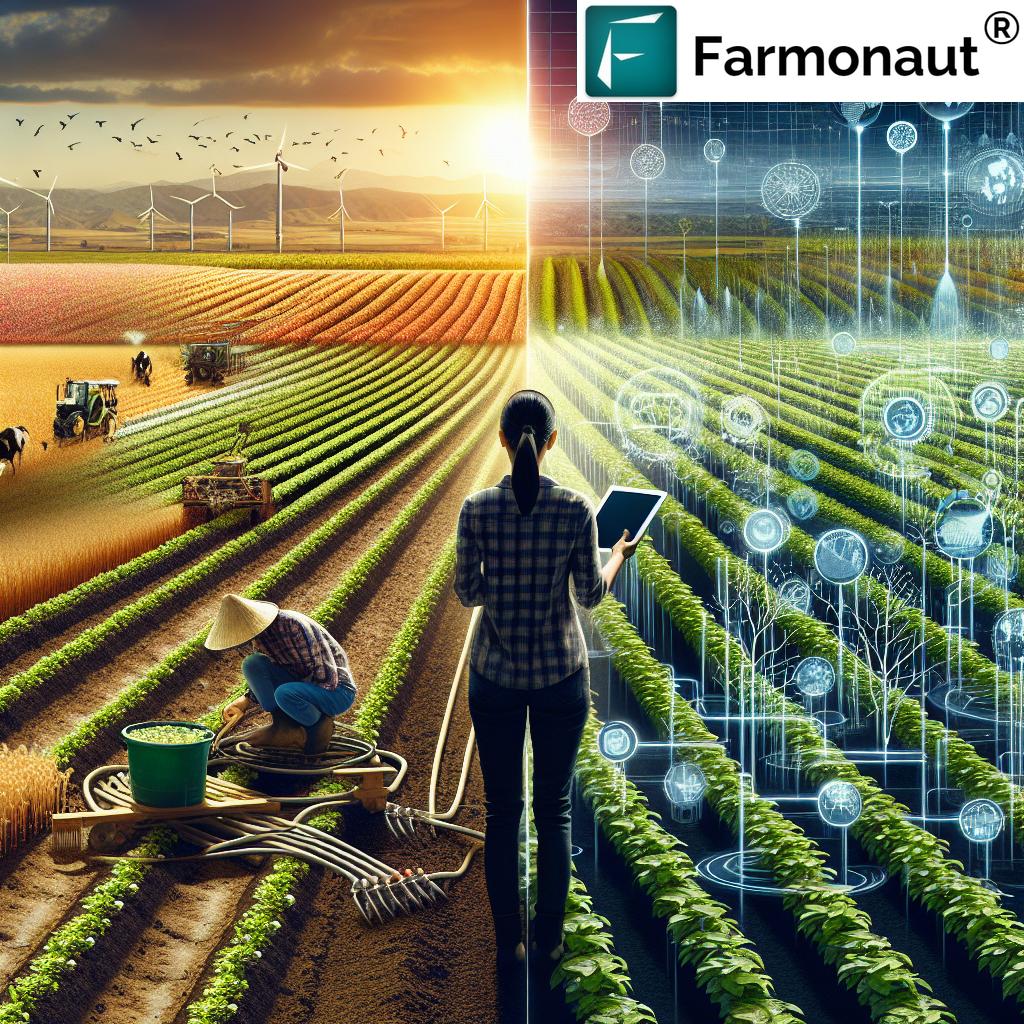
Digital Farming Practices: Data-Driven Decision Making
Digital farming practices are revolutionizing how farmers manage their operations. By leveraging data from various sources, farmers can make more informed decisions about every aspect of their business. Key components of digital farming include:
- Farm management software for comprehensive operation oversight
- Data analytics platforms for insights and forecasting
- Mobile apps for on-the-go farm management
- Cloud-based solutions for data storage and sharing
- Integration with IoT devices for real-time monitoring
Farmonaut’s platform exemplifies the power of digital farming, offering tools for crop health monitoring, resource management, and AI-driven advisory services. By centralizing farm data and providing actionable insights, digital farming practices are helping farmers optimize their operations like never before.
“Advanced farm management software can help farmers save up to 15% on input costs through data-driven decision-making and resource optimization.”
Enhancing Crop Production Efficiency
The ultimate goal of precision farming technology is to enhance crop production efficiency. This means producing more food with fewer resources while minimizing environmental impact. Some key ways that modern agricultural technologies are boosting efficiency include:
- Optimized input application based on field variability
- Improved timing of planting, irrigation, and harvesting
- Enhanced pest and disease management through early detection
- Reduced energy consumption through more efficient equipment
- Minimized crop losses through precision harvesting techniques
By leveraging these technologies, farmers can significantly increase their yields while reducing their environmental footprint.
Agricultural Sustainability: Balancing Production and Conservation
As we push for increased agricultural productivity, it’s crucial that we do so in a way that preserves our natural resources for future generations. Precision farming technologies play a vital role in promoting agricultural sustainability by:
- Reducing water usage through precision irrigation
- Minimizing chemical inputs through targeted application
- Preserving soil health through conservation tillage practices
- Lowering greenhouse gas emissions with more efficient equipment
- Enhancing biodiversity through precision pest management
Farmonaut’s carbon footprinting feature is an excellent example of how technology can help agribusinesses monitor and reduce their environmental impact. By providing real-time data on emissions, this tool enables farmers to take concrete steps towards more sustainable practices.
The Role of Farm Management Software
Farm management software is the glue that holds many precision farming technologies together. These powerful platforms allow farmers to:
- Centralize data from various sources for comprehensive analysis
- Create detailed farm plans and budgets
- Track inventory, equipment maintenance, and labor costs
- Generate reports for regulatory compliance and financial management
- Collaborate with team members and external advisors
By providing a holistic view of farm operations, these software solutions empower farmers to make data-driven decisions that improve profitability and sustainability.
| Technology | Crop Production Boost (%) | Resource Savings (%) | Sustainability Impact |
|---|---|---|---|
| Remote Sensing | 15-20 | 10-15 (water) | High |
| GIS Applications | 10-15 | 5-10 (fertilizer) | Medium-High |
| Smart Tractors | 5-10 | 15-20 (fuel) | Medium |
| Precision Seeding | 10-15 | 20-25 (seed) | Medium-High |
| Farm Management Software | 20-25 | 15-20 (overall) | High |
The Future of Precision Agriculture
As we look to the future, the potential for precision agriculture to transform farming is truly exciting. Some emerging trends to watch include:
- Integration of 5G technology for faster, more reliable data transmission
- Advanced AI and machine learning for even more accurate predictions and recommendations
- Increased use of drones and robotics for automated farm tasks
- Development of gene-editing technologies for more resilient crops
- Expansion of vertical farming and controlled environment agriculture
These advancements will continue to push the boundaries of what’s possible in agriculture, helping us meet the challenges of feeding a growing global population while preserving our planet’s resources.
Empowering Farmers with Accessible Technology
While the benefits of precision agriculture are clear, it’s crucial that these technologies are accessible to farmers of all sizes. Companies like Farmonaut are leading the way in democratizing access to advanced farming tools. By offering affordable satellite-based farm management solutions, Farmonaut is helping farmers around the world leverage the power of precision agriculture without the need for expensive hardware investments.
Key features of Farmonaut’s platform include:
- Real-time crop health monitoring using satellite imagery
- AI-powered advisory system for personalized farm management
- Blockchain-based traceability solutions for supply chain transparency
- Fleet and resource management tools for optimized operations
- Carbon footprint tracking for improved sustainability
These tools are available through web and mobile apps, making it easy for farmers to access critical information wherever they are.
Explore Farmonaut’s solutions:
Overcoming Challenges in Precision Agriculture Adoption
While the benefits of precision agriculture are significant, there are still challenges to widespread adoption. Some of these include:
- Initial costs of technology implementation
- Need for technical skills and training
- Data privacy and security concerns
- Interoperability between different systems and equipment
- Reliable internet connectivity in rural areas
Addressing these challenges will be crucial for the continued growth and success of precision agriculture. Industry leaders, policymakers, and technology providers must work together to create solutions that make these technologies more accessible and user-friendly for all farmers.
The Role of Education and Training
As precision agriculture technology continues to evolve, education and training will play a crucial role in its successful implementation. Farmers, agronomists, and other agricultural professionals need access to ongoing learning opportunities to stay current with the latest advancements. This includes:
- Workshops and seminars on new precision farming technologies
- Online courses and webinars for remote learning
- Hands-on training with equipment and software
- Collaboration with agricultural universities and research institutions
- Peer-to-peer knowledge sharing through farmer networks
By investing in education and training, we can ensure that the benefits of precision agriculture are fully realized across the farming community.
Conclusion: A Bright Future for Precision Agriculture
As we’ve explored throughout this article, precision farming technology is revolutionizing agriculture, boosting crop production efficiency, and promoting sustainability. From advanced equipment and smart farming systems to innovative software solutions, the tools available to modern farmers are more powerful than ever before.
Companies like Farmonaut are at the forefront of this revolution, making precision agriculture accessible to farmers worldwide through their satellite-based farm management solutions. As these technologies continue to evolve and become more widespread, we can look forward to a future where agriculture is more productive, sustainable, and resilient in the face of global challenges.
By embracing precision agriculture and continuing to innovate, we can ensure a bright future for farming – one where we meet the growing demand for food while preserving our planet’s precious resources for generations to come.
FAQs
- What is precision agriculture?
Precision agriculture is a farming management concept that uses technology to observe, measure, and respond to variability in crops, enabling farmers to optimize their inputs and increase efficiency. - How does satellite imagery help in farming?
Satellite imagery provides valuable data on crop health, soil moisture, and field conditions, allowing farmers to make informed decisions about irrigation, fertilization, and pest management. - What are the benefits of using farm management software?
Farm management software helps centralize data, streamline operations, improve decision-making, and increase overall farm productivity and profitability. - How does precision agriculture contribute to sustainability?
By optimizing resource use and reducing waste, precision agriculture helps minimize environmental impact while maintaining or increasing crop yields. - What is the role of AI in modern farming?
AI in farming can analyze vast amounts of data to provide insights, predict outcomes, and automate tasks, leading to more efficient and productive agricultural practices.
Explore Farmonaut’s API solutions:



